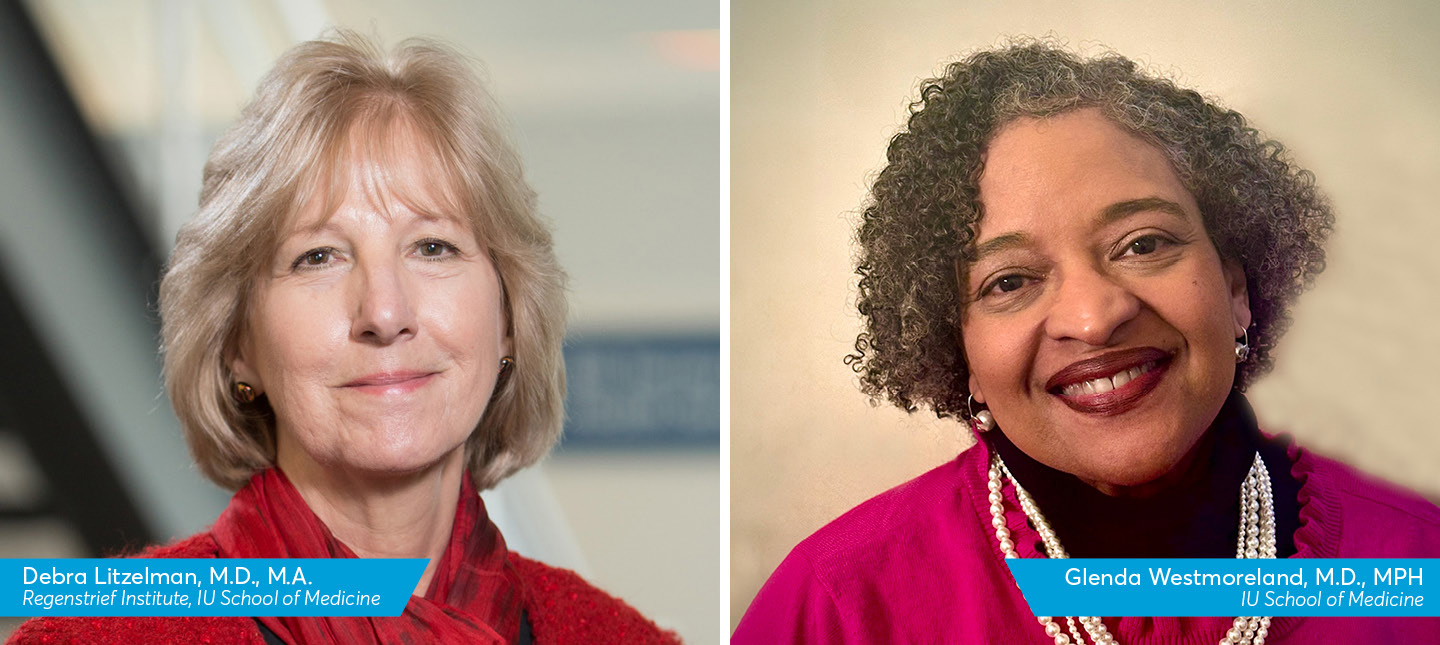Successful new training method one of first to use virtual standardized patients
INDIANAPOLIS – The pandemic has highlighted the acute shortage of nurses and nursing assistants needed to care for the growing number of older adults in long-term care facilities. Yet getting nursing students excited, engaged and feeling competent to take on the challenges of caring for nursing home patients has proved elusive.
To address this critical workforce gap, researchers from Regenstrief Institute and the Indiana University School of Medicine have developed and tested an innovative curriculum for nursing students, exposing them to geriatric care early in their training with the goal of interesting more of them in specializing in care for older adults.
A new study presents the curriculum, one of the first to use virtual standardized patients, which could be incorporated into various healthcare provider training programs worldwide.
“Traditionally, geriatric curriculums taught in schools of nursing are focused on medical content — improving medical knowledge in areas critically important in geriatric care such as dementia, mobility and medication risks,” said Regenstrief Institute and the IU School of Medicine research scientist Debra Litzelman, M.D., M.A., senior author of the study. “Our work takes it to the next level of being able to actually practice clinical skills with virtual simulated patients, providing a higher level of training. We often talk in the education world of knowledge, attitudes and skills. Our curriculum covers all three.
“Our hope is that by showing the effectiveness of geriatric virtual standardized patients in educating nurses about geriatric care, this approach could be used in the training of professionals providing patient care to other age groups and for various diseases in a wide range of geographic settings. It’s exportable methodology and I see the potential for an explosion of tiers of workforce members in geriatrics as well as other specialties.”
According to the U.S. Census Bureau, there are approximately 59.2 million persons in the U.S. over age 65, an increase of 9.4 percent between 2020 and 2023. This rise in older adults in the U.S. is due both to extended longevity and the aging of the “baby boomer” population, those born between 1946 and 1964.
The development and testing of the new geriatrics nursing training is part of a larger effort by the researchers to increase the primary care workforce focused on care of older adults by interprofessional teams including doctors, physician assistants, social workers and community health workers as well as nurses.
“Older adults have nuances and complexities in their psychosocial, physiological and medical statuses. They require specialized management of their health provided by professionals who have been educated about the variations of care needed by older adults to optimize their overall well-being. However, despite the need for specialized health professionals, there are inadequate numbers of instructors trained in geriatric fields,” said study author Glenda Westmoreland, M.D., MPH, associate professor of clinical medicine and director of geriatric education at the IU School of Medicine. “One solution to the low numbers of current health professionals available to care for older adults and train the upcoming generation of healthcare providers is to identify creative teaching options.
“The virtual simulated patients curriculum provides students’ opportunity to practice addressing concerns common in older adults including mobility limitations, mentation –especially confusion — and safe medication use. Additionally, students explore how to ask, “What matters most?” — providing them with the skill to confidently ask this essential question when implementing care for patients. Our use of virtual simulated patients is not only applicable in teaching nursing students geriatric education; it can be applied to all health care professionals interacting with older adults.”
“Responding to a nursing mandate in long-term care: A multi-modal pilot curriculum for bachelor of science in nursing students” is published in Journal of the American Geriatrics Society. The study was funded by the U.S. Department of Health and Human Services’ Health Resources and Services Administration (HRSA) Geriatrics Workforce Enhancement Program /U1QHP2871. (P.I.: Debra Litzelman, M.D., M.A.)
Authors and affiliations:
Glenda R. Westmoreland, M.D.1,2,3 | Kathryn I. Frank, R.N., PhD2 | Emilie L. Garrison, B.A.2 | Qing Tang, M.S.4 | Julia Loubeau, MSN, AGPCNP-C3 | Julie Krieger, MSN, AGPCNP-BC3 | Sarah Hartman, N.P.3 | Sarah Roth, MHA, MPH, PMP, CCRP4 | Debra K. Litzelman M.A., M.D., MACP1,2,3,4
1Department of Medicine, Indiana University School of Medicine, Indianapolis, USA | 2Department of Medicine, Indiana University, Indianapolis, USA | 3Department of Medicine, Indiana University Health, Indianapolis, USA | 4Regenstrief Institute, Indianapolis, USA
Debra Litzelman, M.D., M.A.
In addition to her role as a research scientist in the William M. Tierney Center for Health Services Research at Regenstrief Institute, Debra Litzelman, M.D., M.A., is the D. Craig Brater Professor of Global Health Education and a professor of medicine at Indiana University School of Medicine and the director of education for the Indiana University Center for Global Health Equity. Dr. Litzelman serves on the Education Leadership Cabinet at Indiana University School of Medicine and on the Global Health Leadership Committee at the Indiana Clinical and Translational Sciences Institute.








